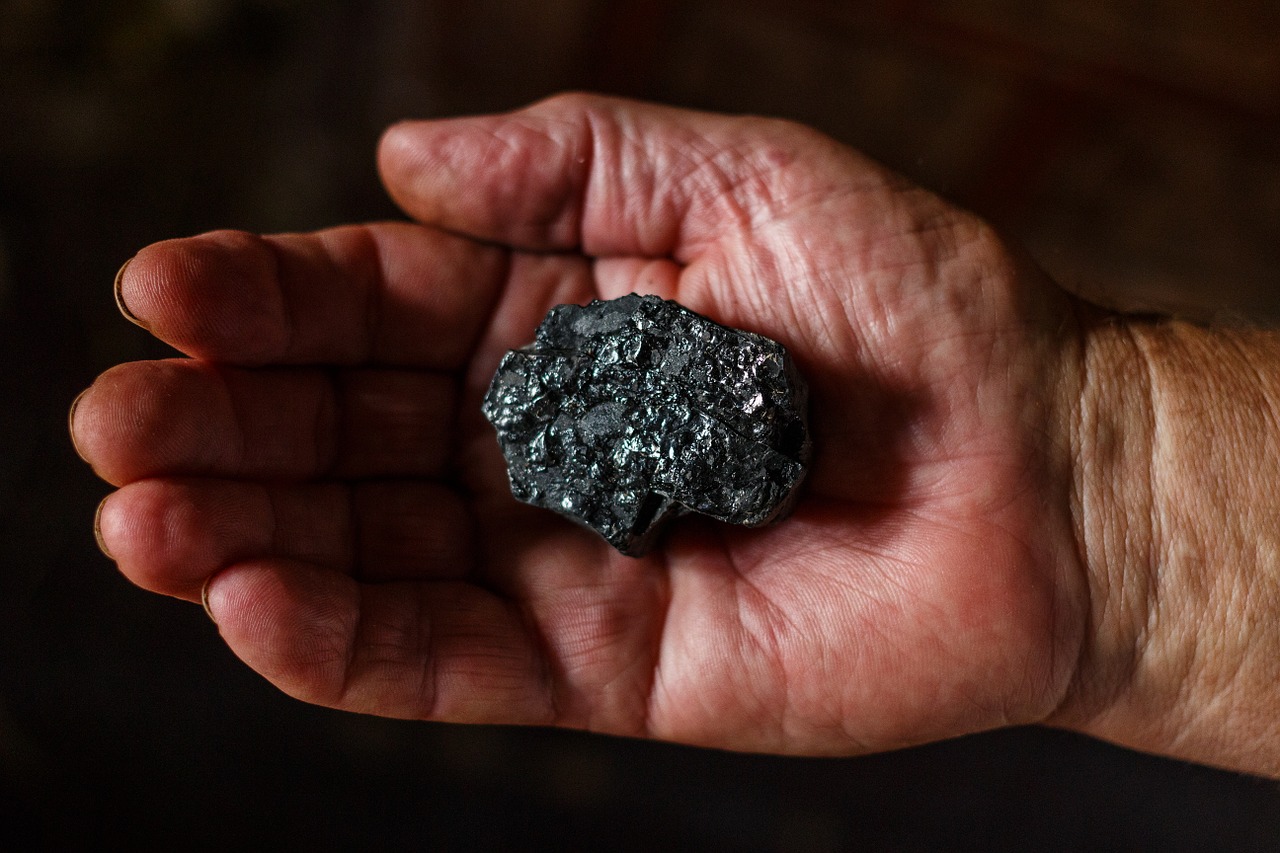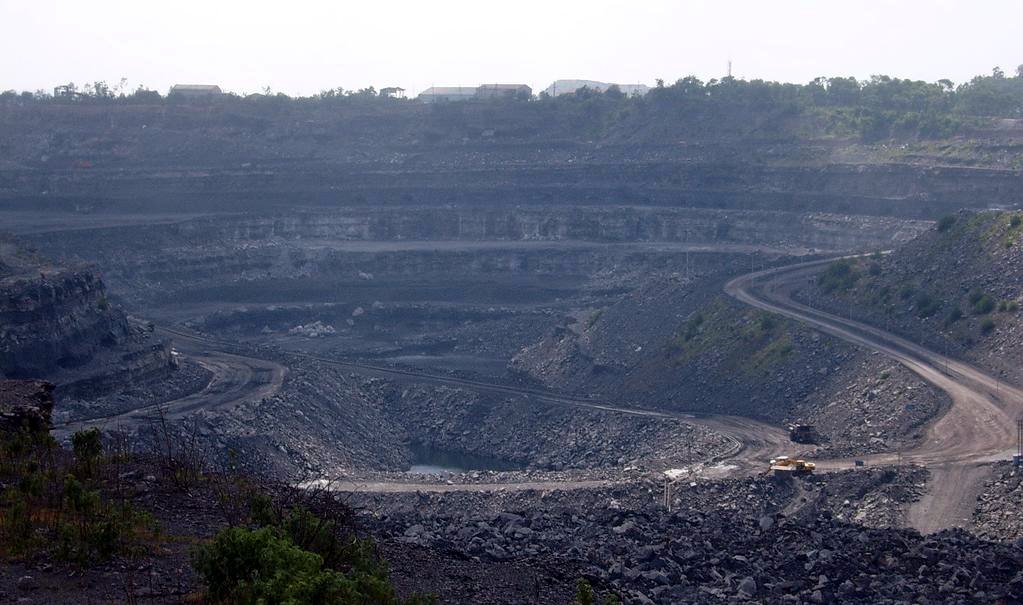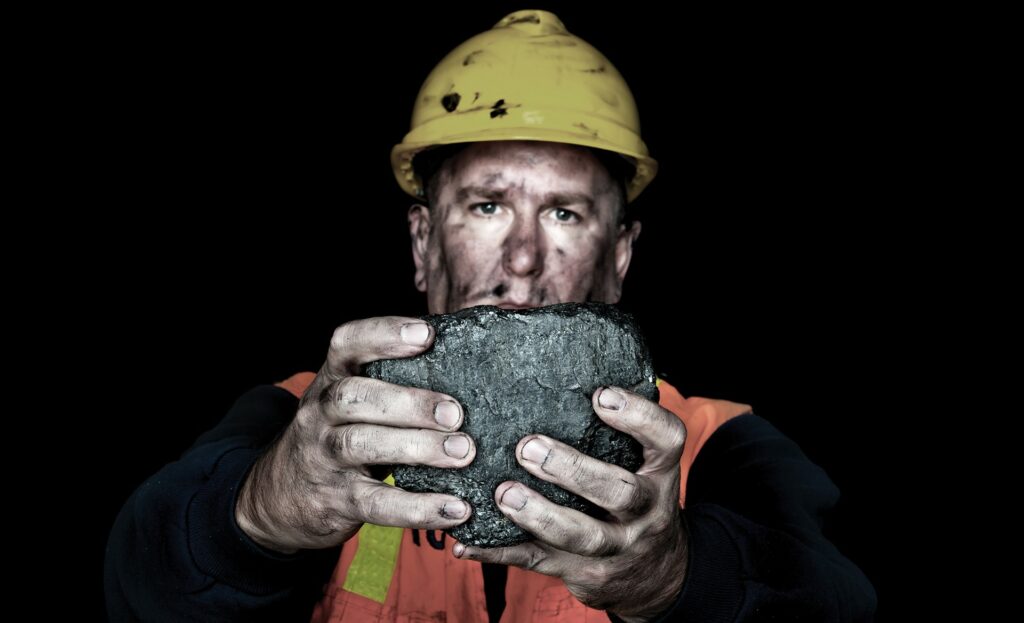Coal Energy Advantages and Disadvantages – Coal, with its ubiquitous supply, has been one of the most reliable and important sources of fuel across the world for many years. Its use as a primary energy source has come under national and international debate in recent years, and despite the number of benefits coals has to offer, it does not come without negative attributes. Aside from being a source of carbon emissions, according to experts, it is also one of the dirtiest forms of energy. Be that as it may, it is also a type of fossil fuel that supplies 40percent of the world’s electricity. Let us discuss the coal energy advantages and disadvantages to have a better understanding of this mineral. Read this new blog in Linquip to find out more about them.
How We Write this Blog Post about Coal Energy Advantages and Disadvantages
Writing a blog post about the advantages and disadvantages of coal energy required us to conduct extensive research. One of the most significant challenges we faced in this process was understanding the complex technical aspects of coal energy production and its environmental impact. To address this challenge, we consulted with a team of experienced professionals who have extensive expertise in the field of energy. They helped us develop a comprehensive understanding of the subject, including the benefits and drawbacks of using coal as an energy source.
In addition to consulting with experts, we also conducted a comprehensive online search to gather relevant information. We searched through multiple reputable sources, including scientific databases, government reports, and industry studies, to gain a deeper understanding of the topic. We also monitored news articles and online discussions to stay informed about the latest developments in the field.
One of the most important aspects of the research process was fact-checking. As a team of experienced writers, we understand the importance of accuracy and credibility in our work. We made sure to verify all the facts and statistics before incorporating them into the article.
As a result of our extensive research, we were able to create a balanced and informative article that provides a comprehensive overview of the advantages and disadvantages of coal energy. We hope that it will be a valuable resource for readers who are interested in this important topic.
Positives and Negatives of Coal
Is coal a power resource that we should still be using as a primary source of energy? The answer lies in the coal energy advantages and disadvantages for our modern world.
Advantages of Coal
- Huge Global Reserves
- Not an Intermittent Energy Source
- Reliable Fuel
- Inexpensive Energy Source
- Independent of the Weather
- Plenty of Applications
- Compatible With Other Energy Sources
- Creates Jobs
- Reduce Dependence on Oil
- Easy to Store
- Smokeless Alternatives
- Convertible to Various Formats
- Minimal Wastes, Consumable Byproducts
- Low Capital Investments
- Output Is Controllable
- Comparatively Safe
- Simple Burning Process
- Risks are Easier to Mitigate
Below are some of the benefits that coal brings along to anyone or society that makes use of it.
-
Huge Global Reserves
Perhaps standing out as the core advantage of coal is its huge global reserves. Conservative estimates place this value at around 1 trillion tons. When consumed at the present rates, this reserve is sufficient to take us through another 200-400 years. For this reason, we have nothing to worry about with regards to the consequences of depletion. Instead, we have every peace of mind and surety we need to make the most of the resources while they last. 200-400 years is enough time also to prepare for alternatives upon the depletion of the same.
-
Not an Intermittent Energy Source
Coal, unlike solar, wind, or hydro, is a round-the-clock energy source. It is never affected by snow like hydro; neither is it impacted by darkness like solar. Given also that you may use it wherever and whenever it suffers less from seasonal fluctuations as the wind power does. All these combines to make your experiences wholesome and quite reliable. This fuel source is also great for use in those industries or circumstances where there ought to be a reliable flow of heat or power. The automobile and manufacturing industries are the ones that rely heavily on them.
-
Reliable Fuel
Compared to solar power or wind energy, coal is a reliable, predictable, and dependable fuel. While it may not be at the forefront of national energy production, it can provide invaluable backup service and highly reliable fuel.
-
Inexpensive Energy Source
Compared to other leading alternatives, it is cheaper to come by coal. This is also reflected in the amount of power that coal generates. It goes for a few cents per kilowatt-hour to afford. It is how affordable the power is that counts in the end. If you are mostly concerned about cost aspects, then you have no better companion than coal. Being cheaper, the costs of power that coal generates is also cheaper than those of coal and other alternative power sources.
-
Independent of the Weather
The only time that coal mining may be halted is when the site is declared dangerous or inoperable. But if it is just rain or strong winds, work would continue, and power plants will remain in operation. This means a continuous supply of electricity. If domestic and commercial establishments were to rely on wind turbines, solar panels, or hydro-energy sources, the availability of power would depend on existing climatic conditions.
-
Plenty of Applications
Coal is very versatile, not just for electricity generation. Even its by-products have amazing uses. Refined coal tar, for example, is used to produce phenol, creosote oil, naphthalene, and other chemicals. Aspirin, soap, dyes, and fabrics also make use of coal’s by-products. Coal itself is also used on specialist products, including activated carbon that is used to manufacture water filters, air purifiers, and kidney dialysis machines. Carbon fiber and silicon metal also use coal as an essential ingredient. Everyone who knows the purpose of such materials knows just how important the role coal plays. Shampoos and toothpaste would not be the same without them.
-
Compatible With Other Energy Sources
This source of fuel also has the added advantage of being compatible with other energy sources. It is possible for you, for instance, to incorporate biomass technology into coal facilities. With this combination comes many advantages. Among these are reduced carbon emissions, reliable long-term energy production, and higher long-term economic output. Also, if the coal eventually depletes, it is possible to use the same facilities to provide other sources of power to the same population at any given time.
-
Creates Jobs
The coal industry is generally labor-intensive. That means it requires a huge number of people to operationalize and actualize it. It stands in contrast to other sources of energy like hydroelectricity and nuclear power, which are capital-intensive. This has some advantages. It creates a huge number of job opportunities in the area or jurisdiction that opts to capitalize on it. Among some of the personnel that is bound to gain from this ecosystem are truck drivers, miners, loaders, cleaners, and power plant operators. Its use is hence quite beneficial to an entire society wherein the technology and heating source is largely employed.
-
Reduce Dependence on Oil
Energy security can only come if we invest in cleaner fuels and greater efficiency on energy security, which can be achieved by reducing dependency on foreign oil, a reality that is considered a national security risk since they are sourced from nations with unstable political regimes. But the better solution would be energy independence that coal can help deliver, especially now that electric cars are growing in popularity. Since they only need to be recharged, dependency on foreign oil can be cut by a third by 2025.
-
Easy to Store
Of late, some technological advancements have improved storage and reduction of emissions. In particular, the safe capture and storage technology stands tall. With better storage comes the added benefit of reduced potential global warming. Thus, those fears that many dread is effectively reduced. It is unlikely hence that the atmosphere may suffer intense damages with use. Owing to the ability to store coal, you have the advantage of packaging it when it is abundantly available and them making use of the same at a later date.
-
Smokeless Alternatives
You might be put off by coal’s environmental impact, or you can’t burn coal because you’re in a smoke control area. Fortunately, smokeless coal alternatives exist to provide fantastic heating performance in a much cleaner fashion. Alternatives include manufactured smokeless coals and natural anthracite.
-
Convertible to Various Formats
You can convert coal into various formats. Among these are the gaseous and liquid states, respectively. Moreover, it is also possible for you to use it in the raw form. This means you stand to obtain greater levels of convenience. You decide the form you are comfortable with, and there you go! Yet another closely related benefit is the fact that you may package and transport the coal to a faraway place for use. It is impossible to do so with hydropower, for instance. This makes coal good for remote use and application.
-
Minimal Wastes, Consumable Byproducts
Compared to other forms of energy, coal produces minimal wastes and hence tends to have a high form factor. Apart from the smoke that arises from the coal, almost no other wastes come along. This is largely made possible by efficient infrastructure and combustion technologies. As we have explained above, it is possible to use the byproducts of coal combustion to manufacture other products that may be utilized elsewhere. Minimal wastes bring along higher value for your money and better peace of mind. It also bodes well for your environment.
-
Low Capital Investments
Many power and fuel generation technologies that exist are already optimized for coal use. It hence goes that you will not have to invest too much of your money to get started. The case is, however, totally different from nuclear and other renewable sources of energy. This is some good news as it means limited expenditure on your part. It means that you do not have to dig too deep in your pocket to be able to accrue the benefits that come along ordinarily with it. Also attached to this is the fact that the costs of power that are generated are cheaper.
-
Output Is Controllable
For coal, you can control the outputs. You can vary the rate of the heat output to measure up to the demand and vice versa. The same may not be said with other forms of energy. You can’t vary the rate of hydropower output, solar, or wind. Using them puts you at their mercy and highest power output. Being able to determine the power output also means that you are in charge of the production process. On the same note, you have the power to determine the costs aspects of the production exercise altogether.
-
Comparatively Safe
Like any other source of power, coal also has its fair share of potential downsides. However, it is comparatively safer than competing alternatives like nuclear. This mainly derives from the fact that coal itself brings about limited spates of damages. Also adding to this safety is the fact that the welfare of coal plant workers has drastically improved over the years. May safety gears have been manufactured and adopted for use by miners and other stakeholders in the coal industry. This has gone a long way in mitigating the risks that ordinarily come about.
-
Simple Burning Process
Extracting the heat output from coal is simpler than say deriving electricity from hydro sources or nuclear energy. All you have to do is place the coal in a reaction chamber, and there you have it! It is hence, a faster and more convenient way of generating electrical output. On the same note, you do not have to possess too great expertise to be able to tackle it. This means that the societies that handle and utilize coal for power generation operate at a cheaper advantage. With this also comes the added benefit of reduced costs of the power that comes with the coal.
-
Risks are Easier to Mitigate
In the unlikely event of an emergency, it is easier to mitigate those side effects compared to say nuclear or hydropower. Nuclear explosions ordinarily take too much of a toll on the persons affected and the environment at large. The same applies to a situation where the hydroelectric dams collapse under the weight of the water that is held back. Cheaper costs of mitigating these effects mean that the use of coal ordinarily brings about a greater peace of mind while in use. At the same time, it is also a cheaper and more affordable option to handle. Thus, you do not have to worry excessively if you choose to work with coal.

Disadvantages of Coal
- Non-renewable Source of Energy
- Environmental Impact
- Destroys Natural Habitats
- Coal Mining Impact
- Impact on Miners’ Health
- Potentially Radioactive
- Displaces Human Settlements
There are downsides to using coal as an energy source. The following are coal energy disadvantages.
-
Non-renewable Source of Energy
Though present in abundant supply, coal is, unfortunately, not a renewable source of energy. That means it shall cease to exist or be important as soon as the last drop is expended. In case there is no viable backup plan in place, its disuse may inconvenience the industries and facilities that presently rely heavily on it for electrical power and heating. This may take a toll on the economic output of the areas concerned. Repurposing the facilities that rely on them at the moment to accept other forms of energy might never really be a walk in the park. Even if it does, it may come at too great a cost on your part.
-
Environmental Impact
Emissions of CO2 from coal-burning also accounts for the additional 65% of carbon dioxide in the atmosphere, increasing greenhouse gases. To anyone’s books, this means climate change and global warming. The pollution it causes has also led to acid rain in some areas. Although there are a lot of causes of acid rain, burning coal is a major contributor because it releases sulfur dioxide, and acid rain has higher than normal amounts of sulfuric and nitric acid.
-
Destroys Natural Habitats
Remember that coal seams are surrounded by plants, rivers, and other natural landscapes, and digging for coal would mean destroying forest areas that serve as wildlife habitat. In the course of extracting coal for heating and industrial use, the habitats of plants and animals inevitably get destroyed. There is little doubt that the ecosystem and biodiversity would take a beating. The process also results in water, soil, and air pollution, thus acid rain. The noise coming from large mining equipment can also hurt local wildlife. On the same note, many groundwater sources are also compromised. The situation is compounded by fire outbreaks that are more likely to arise in the course of extracting the coal. This may pose extreme damages to the nearby infrastructure. It also disrupts the harmony that exists like the affected area. Some species also get lost in the process. Even though the landscape may be restored after the dereliction of the land and mining is over, it might never revert to its original pristine condition. If it happens to do so, it may take quite a long time to do so. Newer coal plants, however, now emit 40% less CO2, according to the World Coal Institute. But this is still far from being able to repair whatever damage older plants have made.
-
Coal Mining Impac
Transporting coal would require an extensive transportation system that is likely to pass through mountains, valleys, etc. Building such infrastructure would not only destroy the landscape but also increases pollution due to emissions from various vehicles.
-
Impact on Miners’ Health
Direct and prolonged exposure to coal is potentially deadly. This is especially true if there is direct exposure to the concentrated carbon dioxide that is emitted as a byproduct in the production chain. Some of the sources of coal-related deaths include such issues as premature deaths, suffocation, asthma, pneumonia, lung cancer, and oxygen deprivation. Many people also suffer from fatigue and sleep deprivation. Thus, its benefits may be counterbalanced by the adverse side effects that ordinarily come along with continued use and reliance on the energy source.
-
Potentially Radioactive
Other than abundant levels of carbon dioxide, coal also produces sufficient levels of outward radiation. These radiations are carcinogenic in that they cause cancer and cell mutations. Many people who work or live near coal plants have been noted to suffer from asthma, lung cancer, and other forms of radiation-related illnesses. Quite a number have also noted some disorders and complications. While these effects pale in comparison to nuclear power, they are nonetheless disastrous and have to be handled with absolute caution. The use of safety gear is one way of achieving this desirable end.
-
Displaces Human Settlements
the coal is discovered in areas that are already inhabited by humans; the extraction of such deposits may render the area inhospitable by humans later. Such an extraction has a toll on the environment from which coal is extracted. Though the environment may be restored later, such may never happen. Such damages ordinarily bring about untold economic side effects. Chief among these is the fact that the affected persons have to relocate to other areas. Then, the homes which were already in existence before the destruction have to be compensated somehow.

We cannot deny the fact that using coal energy is very important to us. All of us want an affordable and reliable energy source which we can only get by using coal energy. We should consider all facts about coal energy advantages and disadvantages. Although using coal energy is very significant for us and living without it would become impossible, we should always open our minds to the damage the continuous use of coal energy will eventually bring to us and our environment.
So, there you have every single fact about the positives and negatives of coal. If you enjoyed this article in Linquip, let us know by leaving a reply in the comment section. Is there any question we can help you through? Feel free to sign up on our website to get the most professional advice from our experts.
FAQs about Coal Energy Advantages and Disadvantages
What are coals advantages and disadvantages?
Energy from coal is comparatively inexpensive. Mines must be built, which can be hazardous and unsightly, in order to extract coal. Pollution results from moving coal by rail and truck from the mine to the power plant. Acid rain is caused by harmful chemicals like sulfur dioxide that are produced when coal is burned.
What are the advantages of using coal for energy?
People rely on coal because it is widely available, easy to get through mining, and a reliable source of energy. The storage of coal is simple. When it has been mined, it may be stored without risking a fire or explosion, unlike with gas or oil. Coal can be converted into energy rather easily and cheaply.
What is the biggest advantage of using coal for power?
In order to fulfill energy consumption demands, coal-fired power plants offer consistent, dependable, and economical electricity that is accessible on demand.
What is the disadvantage of using coal as a source of energy?
The additional 65% of carbon dioxide in the atmosphere is also a result of emissions of CO2 from coal burning, which raises greenhouse gas levels. This signifies climate change and global warming in anyone’s book. In other regions, acid rain has also been brought on by the pollution it creates.
How does coal affect the environment?
Burning coal discharges hazardous and cancer-causing compounds into our air, water, and land in addition to increasing greenhouse gas pollution, which has a negative impact on the health of miners, employees, and the communities around them.
Download Coal Energy Advantages and Disadvantages PDF
linquip.com-Coal Energy Advantages and Disadvantages in 2023
Watch Videos about Coal Energy Advantages and Disadvantages
For more information about Coal Energy Advantages and Disadvantages, watch this video about Coal Energy Advantages and Disadvantages.
Buy Equipment or Ask for a Service
By using Linquip RFQ Service, you can expect to receive quotations from various suppliers across multiple industries and regions.
Click Here to Request a Quotation From Suppliers and Service Providers
Read More In Linquip
- Australia’s Solar Power Generation Outshines Coal in Renewable Energy Harbinger
- What are the Disadvantages of Fossil Fuels?
- A Cheat Sheet For Coal Energy Pros And Cons
- Advanced Guide: How Does Coal Energy Work
- The 10 Best Solar Generator
- The 8 Best Home Wind Turbines
- Types of Nuclear Reactors: Differences and Operation Principles
- 10 Main Types of Energy Storage Methods





Thanks for an easy to read, non-biased and informative article.
Thanks for visiting our website, Brain! We hope you visit our other posts as well.
What an article
Very useful and convenient to use
Thanks for visiting our website and leaving your comment, Shrutik! You are encouraged to visit Linquip Tech News, where you can find similar posts.
Do you have a youtube channel so I can subscribe, like, and click the bell?
Beautiful and enlightening article indeed. Thank you so much ?
Thanks for visiting our website and leaving your comment, Enna! We hope to hear from you again in our other posts.